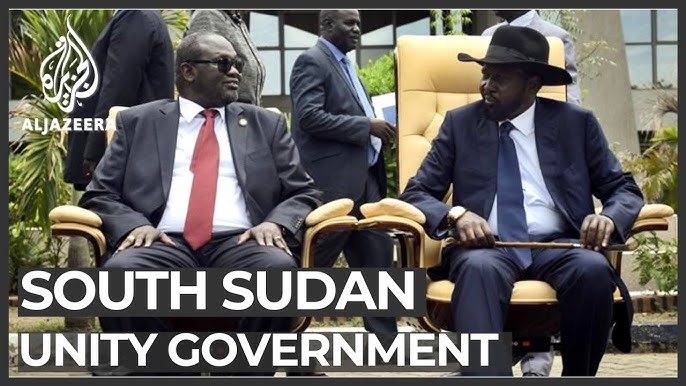Kenya urged South Sudanese leaders to prioritize peace and allow the ongoing peace agreements to proceed, following the arrest of First Vice President Riek Machar.
Speaking on Wednesday, Prime Cabinet Secretary and Foreign Affairs Cabinet Secretary Musalia Mudavadi expressed Kenya’s concern over the unfolding situation in South Sudan.
“The Kenyan government calls on all parties in South Sudan to prioritize peace by respecting the ongoing peace agreements under the Intergovernmental Authority on Development (IGAD)’s Revitalized Agreement on the Resolution of the Conflict in South Sudan (R-ARCSS),” Mudavadi stated.
He further urged South Sudanese leaders to exercise restraint and avoid escalating tensions.
Machar, a longtime political rival of President Salva Kiir, was arrested on Wednesday in what the United Nations has described as a move that places the country on the brink of widespread conflict.
Reports indicate that a convoy of 20 heavily armed vehicles stormed his residence in Juba and took him into custody, marking a dramatic escalation of tensions that have been simmering for weeks.
The arrest has raised fears of renewed civil war, as the fragile power-sharing deal between Kiir and Machar appears to be unraveling. The two leaders had previously reached a truce to end a five-year conflict that killed an estimated 400,000 people between 2013 and 2018.
Machar’s party condemned his arrest, accusing government forces of violating the peace agreement. A statement shared by Reath Muoch Tang, chairman of the party’s foreign relations committee, said that Machar’s bodyguards were disarmed and that he was taken into custody under unclear charges.
The United Nations Mission in South Sudan (UNMISS) warned that the arrest could push the country into a new cycle of violence.
“Tonight, the country’s leaders stand on the brink of relapsing into widespread conflict,” UNMISS head Nicholas Haysom said in a statement. He cautioned that violations of the 2018 peace deal would not only destabilize South Sudan but could also have serious consequences for the entire region.
Since gaining independence from Sudan in 2011, South Sudan has struggled with poverty and instability, despite efforts to implement the peace deal. Analysts believe that Kiir, 73, has been working to sideline Machar politically and secure his own succession through cabinet reshuffles.
In recent months, more than 20 of Machar’s political and military allies have been arrested, with many reportedly held incommunicado. Armed clashes between forces loyal to Kiir and Machar have also erupted in parts of the country, including in Nasir County of Upper Nile State.
Machar’s party has accused government forces of attacking a military base and two training centers near Juba this week. A spokesperson for his military wing, the Sudan People’s Liberation Army-In Opposition (SPLA-IO), denounced the attacks as acts of “terrorism” and called for international intervention. The training centers were meant to facilitate the integration of opposition fighters into a unified national army—a key component of the 2018 peace agreement.
The South Sudan People’s Defence Forces (SSPDF), which is aligned with Kiir, has not confirmed these attacks but instead accused Machar’s forces of hostile movements.
Amid rising tensions, Kiir has maintained that his government remains committed to peace. Speaking before Machar’s arrest, he assured church leaders of his “unwavering commitment to restoring peace.” However, recent violent clashes, particularly in Nasir County, suggest otherwise, with government forces reportedly engaging in battles against the White Army, a militia linked to Machar.
Daniel Akech, a senior analyst at the International Crisis Group, warned that the situation was deteriorating rapidly.
“The violence that started in March in Nasir seems to be spreading across several states in South Sudan,” Akech said, adding that the failure of Kiir and Machar to engage in direct dialogue was a “red warning.”
“If a wider conflict breaks out, it will be highly decentralized and difficult to control,” he added.
Concerned by the deteriorating security situation, Norway and Germany have shut down their embassies in Juba, while the United States and the United Kingdom have scaled down their diplomatic presence and advised their citizens to leave South Sudan.
Email your news TIPS to Editor@Kahawatungu.com — this is our only official communication channel


